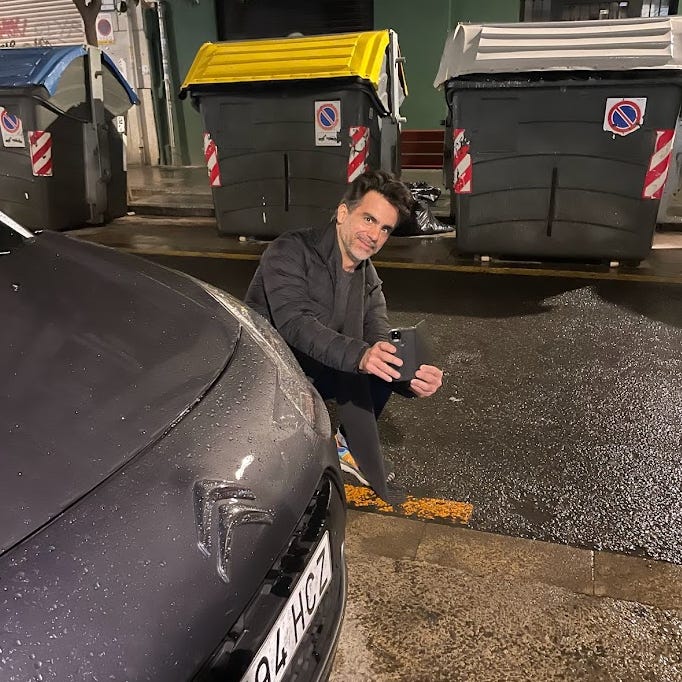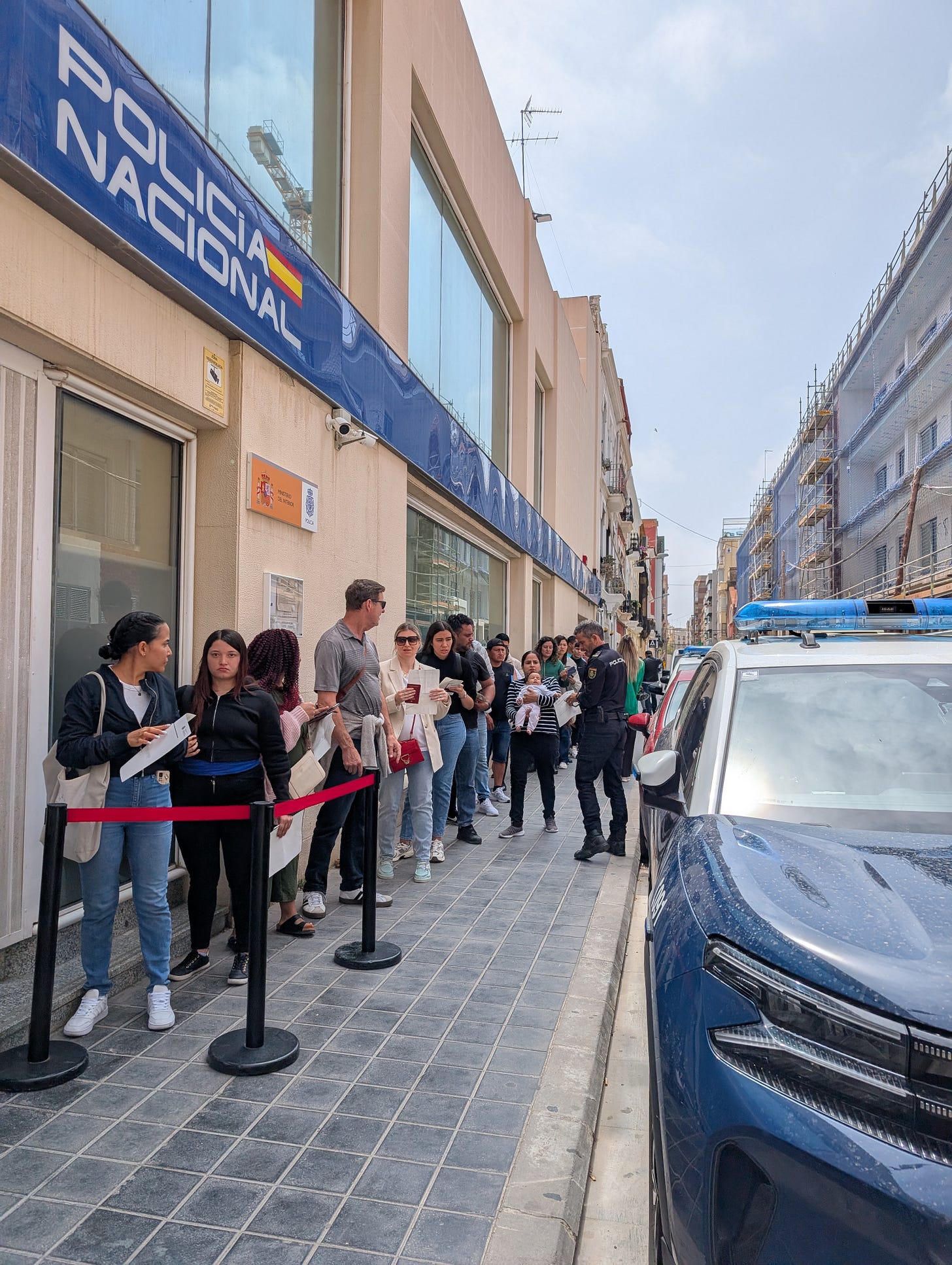Never Retire: When the Dream of Moving Abroad Turns Into a Sales Pitch
Why some "expat" grifters make life sound harder than it is — and what they get wrong about Spanish bureaucracy.
A couple people sent me a YouTube short the other day. It was one of those “moving to Spain is harder than you think” clips from a couple who now seem more interested in monetizing frustration than helping anyone move here.
In this one, they said things like — you’ll need to buy a printer and ink to deal with Spanish bureaucracy. Even if that was a joke, it’s not helpful — and it’s not true. I’ve never owned a printer here.
You email what you need to a nearby shop and pick it up — full copies of two passports, two three-page application forms, and another 10 to 15 random pages — for about €5. It’s simple. Our copy shop (which is way more than a copy shop) is literally right downstairs.
That’s the problem: making everyday tasks sound insurmountable so they can offer to guide you through the mess they’ve exaggerated. That’s not advice. It’s a sales funnel.
Which brings me to this:
An odd and frustrating dynamic is playing out on social media and YouTube right now.
Some people who built followings as lovers of Spain moved here and now—a couple or more years later—seem to have very few nice things to say about the country. These Spain lovers have morphed into Spain critics and—in some cases—into move-to-Spain grifters.
Last month, I wrote about the same couple who moved here a few years ago. And now—in what feels like suddenly—they’re recasting what they once sold as a dream into a nightmare. It’s been hard to watch. The turn feels less like a change of heart and more like a calculated pivot. Opportunistic.
I bring this up again because it’s important. A day doesn’t go by without someone asking me a logistical question about moving to Spain. I’m almost always happy to help. If I don’t know the answer, I try to point them toward someone who does.
That said, I’ve hesitated to wade into the "how to move to Spain" content space, even though I’m asked about it constantly. Why? Because logistics aren’t the hard part.
The hard part is deciding what kind of life you want. And once you know that, logistics are just steps.
Watching the conversation around moving to Spain devolve into noise and negativity has only made me more wary of joining the fray. There are people now whose business model is to convince you that Spain is a bureaucratic hellscape — then turn around and offer to guide you through it.
That’s not guidance. That’s manufacturing a problem so you can sell the solution.
I don’t want to go anywhere near that. And honestly, I don’t need to—people like Shawn and Lainey at Days We Spend are already doing the work, genuinely and thoughtfully. They deserve every one of their subscribers. They’re helpful because they’re honest. They’re credible because they’re calm.
They’re the real deal.
We were slightly spooked too, at first, but mainly ready for the challenge of making the move. Bureaucracy in Spain can sound intimidating if you spend too much time reading about it online. But once you’re in it, you realize that most of the horror stories are just that—stories. Our experiences getting set up here have been orderly, efficient, and fair. We show up with the right documents. We follow the process. We get things done.
And — when we don’t show up with the right documents or fill out a form properly — we don’t expect the person behind the desk to make an exception. That would be bad bureaucracy.
We tend to think bad bureaucracy means too many rules, too much paperwork, or too little flexibility. But it’s actually the opposite. Bad bureaucracy is when rules don’t matter. When someone shrugs off protocol or bends it for you — or for whoever happens to be in front of them.
Good bureaucracy is rigid. It’s clear. It doesn’t change based on your story, your language skills, or your attitude. When a government office won’t accept a photo of your passport instead of the real thing, that’s not dysfunction — that’s the system working. Personal inconvenience doesn’t mean the system is broken. In many cases, it means it’s functioning exactly as it should.
The red flag isn’t the Spanish government. It’s the people telling you Spain is broken—right before asking for your money to fix it.
Spain has its flaws. Every country does. But if you’re honest about what you want, and you're not expecting life to run like a concierge service, it’s more than possible to build something good here.
Not perfect. Not always easy. But good.
And good, real life doesn’t need a funnel, a script, or a sales pitch.





Thanks so much, man. We’re always trying to make stuff that we would find helpful.
You are right, playing up the problem to create a sale is a really poor business model. Undoubtedly, sadly but realistically, those kinds of people will be able to fool some of the people some of the time.
Some like you, will give honest, informed help. Others will turn that ‘honeys, informed’ into a business.
Those who do fall for the doom and gloom, but we can make it all better pitch are in a crowd where misery loves company and have only themselves to blame.